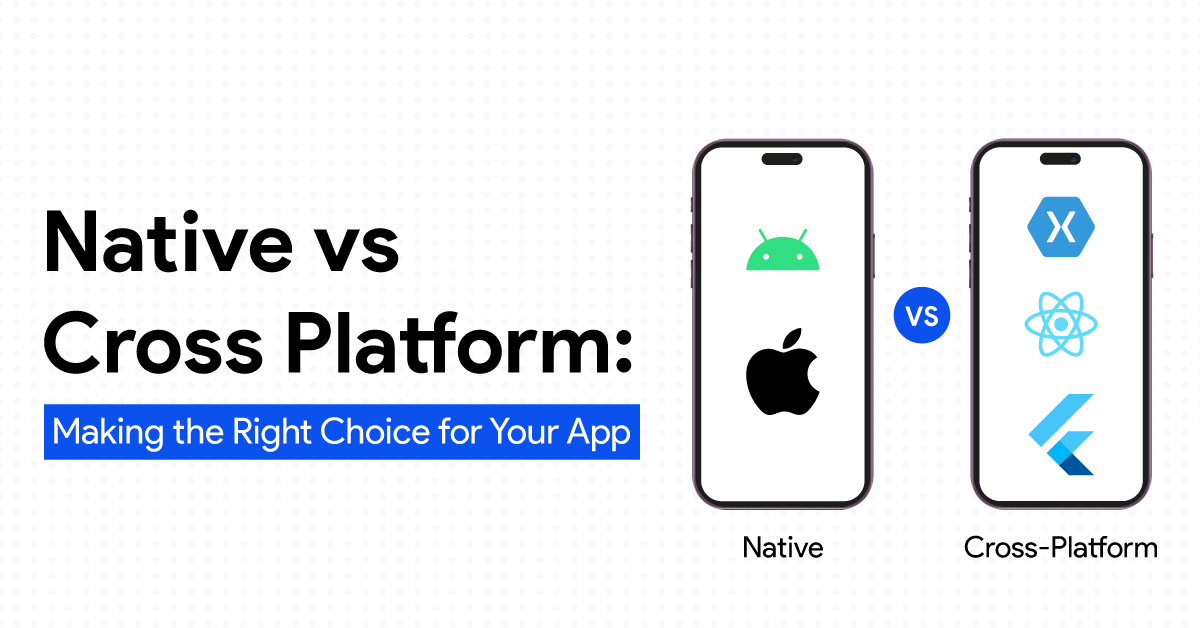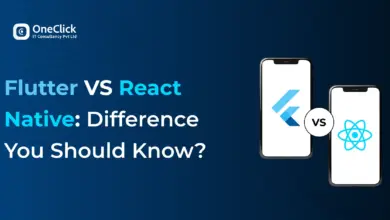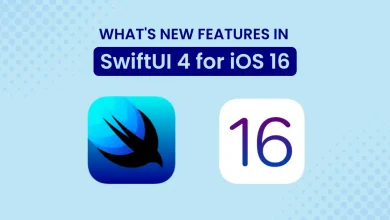Native vs Cross-Platform: Making the Right Choice for Your App

Introduction
Planning to develop a mobile app for your business? Wondering whether to choose native vs cross platform mobile development? Let’s clear up the confusion for a smarter start!
Nowadays, reaching your customers through a mobile app is super effective. But here’s the thing: the app stores are packed. As of 2022, the iOS App Store has about 1.85 million apps, and Google Play has around 2.56 million. Some of these apps work on both iOS and Android, and a few even work on other, less common systems like KaiOS and HarmonyOS.
Back when smartphones just started becoming a thing, apps were made to work on just one system or device. This is what we call native app development. It was all about making an app that fits perfectly on one platform. But as more people started using smartphones and more apps were needed, developers figured out a way to make apps that could run on different platforms without building them from scratch each time. This is where cross-platform development comes into play.
In this guide, we’ll discuss cross-platform vs native development. We’ll look at the pros and cons of each choice to help you decide the best way to build your next app.
Native vs Cross Platform App Development? Let’s Compare!
Native App Development: Precision and Performance
Native apps are developed specifically for one platform, utilizing programming languages and development tools particular to that ecosystem Kotlin or Java for Android and Swift or Objective-C for iOS. This targeted development process allows native apps to achieve optimal performance and take full advantage of the hardware and software features of the devices they run on.
Pros for Your Business
- 1. High-Octane Performance: Leveraging native APIs means your app runs smoother and faster, perfect for delivering an unmatched user experience.
- 2. Richer User Interactions: With access to device-specific features like GPS and NFC, you can offer functionalities that truly engage.
- 3. Market Visibility: Being featured in dedicated app stores boosts your app’s discoverability.
- 4. Offline Capability: Ideal for reaching users in low connectivity areas, expanding your market reach.
But Here’s the Catch
- Time and Cost: Developing separate apps for iOS and Android doubles your effort and expenses.
- Maintenance: Keeping two different codebases up to date can be a logistical headache.
Cross Platform App Development: Efficiency and Reach
Cross-platform development allows businesses to write a single codebase to deploy on multiple platforms, such as iOS and Android. Tools like React Native enable this approach, which is ideal for companies looking to reach a wider audience without significant increases in time and cost.
Pros for Startups & Businesses
- Cost-Effective: Building one app that runs across multiple platforms saves you significant development and maintenance costs.
- Quicker to Market: One codebase means less development time, letting you launch faster than your competition.
- Flexibility: Updating your app or fixing bugs becomes a streamlined process, thanks to shared source code.
- Broader Reach: Launching on multiple platforms simultaneously maximizes market exposure.
The Trade-Offs
- Performance Hitches: Your app might not run as smoothly as a native app, especially if it needs to heavily interact with hardware sensors.
- Limited Access to Device Features: While many plugins and extensions are available, accessing specific hardware features can be more challenging.
- User Experience: Achieving a look and feel that’s consistent with native UI guidelines can be challenging.

Which is Easier to Develop: Native or Cross-Platform Apps?
1. Time to Market
Cross Platform mobile app Development
- Single codebase for iOS and Android.
- Accelerates development process, enabling quicker launches.
Example: Walmart’s transition to React Native significantly improved development velocity.
Native Development
- Requires separate development for each platform, potentially doubling development time.
2. Ease of Testing
Cross Platform app Development
- Single codebase simplifies the testing process.
- Streamlines identification and fixing of bugs across platforms.
Example: Allscripts utilized Xamarin.Forms to share 70-85% of code across platforms, facilitating easier testing.
Native Development
- Each platform version must be tested individually, increasing testing complexity and time.
3. Customizations in the App
Cross-Platform Development
- May face limitations in accessing full range of device-specific features and customizations.
- Third-party services or plugins can partially bridge the gap for specific functionalities.
Native Development
- Offers extensive flexibility for deep API integrations and customization.
- Supports unique, OS-specific UI components and interactions.
Example: Music streaming apps benefit from native development for high-quality audio and Bluetooth support, leveraging device-specific hardware integration.
4. Overall Ease of Development
Cross-Platform Development
Pros: Reduced development and testing time, lower costs, and easier maintenance.
Cons: Potential performance issues and limitations in customization and device feature integration.
Native Development
Pros: Superior performance, extensive customization options, and direct access to all device features.
Cons: Higher costs, longer development and testing timelines, and increased maintenance efforts.
Decision-Making Considerations for Startups
- Budget and Resources: Cross platform app development is generally more budget-friendly, especially for startups with limited resources.
- Market Reach and Launch Timeline: If rapid market entry across multiple platforms is a priority, cross platform development offers a strategic advantage.
- App Complexity and Performance Requirements: For apps requiring high performance or extensive use of device-specific features, native development is preferable.
Better Performance: Native or Cross-Platform Apps?
Application performance isn’t just a technicality; it’s the backbone of user satisfaction and operational success. Imagine your users encountering delays or bugs – frustrating, right? That’s why prioritizing app performance is crucial. A performance gap can lead to loss of users and diminished user experience.
Native Apps
Performance Highlights
- Optimized Operations: Demonstrated superior performance in database interactions, computing tasks, and operational efficiency.
- Read-Write Speed: Showcased faster read-write operations, with Android native apps performing tasks in as little as 26 milliseconds.
- Image Download Speed: Excelled in media content handling, downloading images in 6.8 seconds, indicating streamlined data processing capabilities.
Advantages for Your Business
- Enhanced User Experience: High performance ensures a smooth, responsive user interface, critical for maintaining user engagement.
- Reliability: Superior operational efficiency reduces app crashes and glitches, fostering trust in your app.
- Device Feature Utilization: Direct access to hardware and software features allows for richer, more interactive app functionalities.
Cross-Platform Apps
Performance Insights
- Comparative Performance: While efficient, cross-platform apps lag behind native apps, with a performance difference of 60% in some tests.
- Read-Write Operations: Xamarin-based cross-platform apps took 22 milliseconds for read-write tasks, slightly slower than native but faster than some native Android operations.
- Image Download Time: Cross-platform apps took 7 seconds to download an image, closely matching native app performance but with a slight delay.
Advantages for Your Business
- Market Reach vs. Performance Trade-off: Offers a quicker route to market across multiple platforms at the expense of some performance aspects.
- Cost-Effectiveness: Lower development and maintenance costs due to shared codebase across iOS and Android.
- Flexibility: Easier updates and bug fixes thanks to unified code, beneficial for startups aiming for rapid iteration and deployment.
What This Means for Your Business
If your app demands the utmost in performance, responsiveness, and user experience—think high-definition gaming, intensive data processing, or complex graphical displays—going native is your best bet. This route ensures your app leverages the full power of the device’s hardware and software, offering your users a seamless, glitch-free experience.
However, don’t count cross-platform apps out just yet, especially if you’re balancing multiple priorities. For startups looking to reach a broad audience quickly and efficiently, with simpler app functionalities and a tighter budget, cross-platform development offers a viable path to market.

Native vs. Cross-Platform: Which is Budget-Friendly?
The cost of developing an app isn’t just about the initial price tag; it’s about understanding where your resources are going over the entire development lifecycle. And yes, the complexity of your app’s features plays a big role in this. For instance, crafting a simple login feature could take up anywhere between 26 to 44 hours, while an advanced search functionality might require a whopping 530 to 810 hours of development time. More hours mean more money out of your pocket.
Development Complexity and Time
Native Apps: Developing a native app means creating separate versions for Android and iOS. Given the intricate nature of each platform, from UI design to functionality, you’re essentially doubling your workload. For example, something as straightforward as a login feature could take up to 44 hours per platform. And if we’re talking about more complex features, like an advanced search, you’re looking at hundreds of hours. More development time equates to more money spent.
Cross-Platform Apps: Here’s where things get interesting for your budget. Cross platform development allows you to write your app’s code once and deploy it on both Android and iOS. This reusability significantly cuts down on development time and, by extension, the cost. Whether it’s a simple feature or a more complex one, the ability to use the same codebase for both platforms can offer substantial savings.
Financial Implications for Your Startup
Initial Development Costs: With native app development, you’re essentially funding two app projects (one for each platform), which can strain your startup’s budget. Cross platform app development, on the other hand, requires a single development cycle, slashing initial costs and allowing you to allocate resources elsewhere.
Maintenance and Updates: Post-launch, apps require regular updates and maintenance. Native apps double the effort and cost, as updates need to be rolled out separately for each platform. Cross platform apps streamline this process, offering a more cost-effective solution for ongoing app management.
Bottom Line for Your Business
If budget is a top concern for your startup (and when is it not?), cross platform app development presents a compelling case. It’s a practical, cost-effective solution that allows you to deploy your app across multiple platforms without breaking the bank. It not only facilitates higher initial savings; it also provides better long-term financial sustainability for managing and updating your app.
- Advantages: Lower overall development costs and a shorter time to market.
- Ideal for: Startups with limited budgets needing to launch on multiple platforms simultaneously.
- Cross-platform > Native apps when it comes to being budget-friendly.
Native or Cross-Platform: Which Offers a Superior User Experience?
When you’re knee-deep in the process of bringing your mobile app to life, understanding the impact of user experience (UX) on your business’s success is crucial. It’s not just about making an app; it’s about crafting experiences that turn users into loyal customers. A staggering 70% of customers drop their shopping carts due to poor UX, underscoring the critical role of seamless app interaction in converting engagement to sales.
The UX Superiority of Native Apps
Native applications, designed specifically for their respective operating systems (OS), naturally align with the unique design styles and native elements of those platforms. This alignment ensures that users experience the app in a way that feels intuitive and seamless on their devices. Whether it’s the fluidity of animations, the responsiveness of interactions, or the overall look and feel, native apps have the upper hand in delivering an experience that feels ‘right at home’ to users.
The Cross-Platform Compromise
While cross-platform development offers the allure of a uniform experience across both Android and iOS with a single codebase, this approach may sometimes fall short in leveraging the full spectrum of OS-specific features. This uniformity can lead to a ‘one size fits all’ experience that might not fully resonate with users accustomed to the distinct feel of their chosen platform.
Slack’s UX Journey
Slack, the ubiquitous messaging app for teams, faced challenges with its Android and iOS apps’ inconsistent design patterns and legacy code. These issues not only slowed down development but also compromised app reliability and user satisfaction. Initially considering Electron for a unified cross-platform solution, Slack ultimately found that the complexities in API integrations and maintaining native bridges outweighed the benefits. Their solution? A strategic pivot back to refining their native apps through Project Duplo, enhancing UX by ensuring consistent, platform-optimized performance.
Considerations for Businesses:
- Uniformity vs. Customization: While cross-platform apps can reach more users faster, they might not offer the depth of customization and performance of native apps.
- Development Decision: Your Businesses would need to weigh the importance of a singular, unified codebase against the desire for a platform-optimized user experience.
- Assessing UX Needs: If your priority is to offer an intuitive, high-performance app that leverages device-specific capabilities, native development might be more suitable.
- Budget and Resources: Consider whether the cost and resource implications of native development align with your business objectives or if the broader reach and efficiency of cross-platform development are more strategic.
Native or Cross-Platform for Superior UX?
Native Development: Choose if delivering the highest quality user experience, performance, and device integration is paramount.
Cross-Platform Development: Opt for if reaching a wide audience quickly with a uniform app experience across platforms is the goal, understanding the limitations in customization and performance.
Native or Cross-Platform: What’s Best for Security & Maintenance?
Native Apps
OS-Specific Development: Tailored to utilize the full security features of the underlying operating system.
Separate Maintenance for Each Platform: Requires updates and bug fixes to be implemented individually for iOS and Android.
Pros:
- Access to native encryption libraries.
- Reduced risk of vulnerabilities due to direct control over the security environment.
- Tailored optimizations can enhance the app’s performance on each platform.
Cons:
- Requires specific security expertise for each platform (iOS/Android).
- Doubled maintenance effort and costs.
- Potential inconsistencies between platform versions if not synchronized.
Cross-Platform Apps
Framework-Based Development: Utilizes frameworks like React Native, introducing an additional layer between the app and hardware.
Unified Codebase: A single set of code runs on both iOS and Android.
Pros:
- Faster development across multiple platforms.
- Simplifies the update process make a change once, and it applies across all platforms.
- Reduces time and resources needed for maintenance.
Cons:
- Potential for obscured code, leading to vulnerabilities.
- Limited access to native libraries for encryption, possibly affecting data security.
- Updates are limited by the capabilities of the cross-platform framework.
Decision Criteria for Businesses
- Consider Your Security Needs: If your app deals with sensitive user data or requires high levels of security, native development might offer the robust protection you need.
- Evaluate Maintenance Resources: For startups looking to efficiently manage resources over time, cross-platform development could provide a more manageable maintenance pathway.
- Balance Between Security and Efficiency: Determine which aspect security or maintenance ease is more critical to your app’s success and choose accordingly.

Maximize Your Potential With OneClick’s Native and Cross-Platform Solutions
Are you thinking of a cross-platform or native app development company to handle your needs? We know you’re at a crossroads, deciding between native or cross-platform mobile app development. It’s a big deal, and we understand the pressure. Trust OneClick for your cross platform or native app development services. Let’s see how OneClick can help you make the most of your app, whatever route you take.
OneClick’s Native App Development Solutions
- High-Quality Code: Tailored for optimal performance on specific platforms (iOS/Android), ensuring a premium user experience.
- Modular Architecture: Designed for scalability, facilitating easy updates and feature additions as your business grows.
- Performance Monitoring: Continuous monitoring to swiftly identify and rectify any performance issues, ensuring a seamless user experience.
- After-Release Support: Comprehensive support post-launch, helping your app stay relevant and competitive.
- Extensive Testing and Automation: Rigorous testing protocols for a bug-free launch, enhancing reliability and user trust.
OneClick’s Cross-Platform Development Solutions
- Unified Development Team: Expertise in leading cross-platform technologies to deliver a consistent experience across iOS and Android.
- Cost-Effective Solutions: Streamlined development process that reduces both upfront and ongoing costs, maximizing your ROI.
- Rapid Market Entry: Accelerated development timeline, enabling you to reach your audience quicker across multiple platforms.
- Versatile Testing Practices: Comprehensive testing across platforms ensures uniform quality and performance, boosting user satisfaction.
- Leverage our expertise to clarify any uncertainties, ensuring you make a decision that aligns with your strategic objectives. Whether you’re looking to dazzle users with a high-performance native app or captivate a broader audience with a versatile cross-platform solution, OneClick is here to guide you every step of the way.
Summary of Native vs Cross-Platform
So, what’s the best choice for your business? If securing user data and leveraging the maximum potential of device-specific features are top priorities for your app, native development might be the way to go. It offers unparalleled security and performance, tailored to each platform’s unique capabilities.
Native App Development: Peak Performance, Tailored Experience
Native app development can be a preferred choice when you want.
- 1. Top-Notch Performance and Speed: Native apps are optimized for their specific platform, offering the best possible performance and responsiveness.
- 2. Enhanced Security: Leverages the full extent of platform-specific security features, offering a safer environment for your users’ data.
- 3. Unmatched Customizability: Allows for deep customization and fine-tuning of features and the UI/UX, enabling a truly native experience.
- 4. Platform-Specific UI/UX: Craft state-of-the-art, platform-specific user experiences that align perfectly with user expectations.
- 5. Quick Updates and Features Deployment: Easier to deploy updates and new features, keeping your app at the cutting edge.
- 6. Hardware Capabilities: Fully exploit the hardware features of mobile devices, such as cameras, for a richer user experience.
- 7. Resource-Intensive Apps: Ideal for apps requiring intensive use of CPU and GPU, like mobile games or apps with heavy animations.
Cross Platform App Development: Broad Reach, Efficient Resources
Cross platform app development provides the following benefits
- 1. Faster Time-to-Market: Launching your app quickly on both iOS and Android with a single development effort.
- 2. Cost-Effectiveness: Significantly reduces development and maintenance costs thanks to shared codebases.
- 3. Simplicity in Maintenance: Updating and maintaining your app becomes more straightforward when you’re dealing with one codebase for all platforms.
- 4. Code Reusability: Write once, run anywhere maximize efficiency by reusing code across iOS and Android.
- 5. UI Consistency: Offers a unified interface and user experience across different devices, which is great for apps where the UI is similar on all platforms.
- 6. Ideal for MVPs: Perfect for testing your app idea or prototype across multiple platforms without a heavy investment.
Considering Your Path
- Evaluate Your Priorities: Are you aiming for a quick market entry across multiple platforms, or do you prioritize performance and a tailored user experience above all?
- Budget and Resources: Do you have the resources for potentially higher costs associated with native development, or would you prefer the efficiency and cost savings of cross-platform development?
- App Complexity and Goals: Is your app concept simple and MVP-like, or does it demand high performance and deep integration with device capabilities?
Why Not Both?
With OneClick, you don’t have to compromise. We are a cross platform app development company and a native app development company, offering tailored solutions that align with your project’s needs and goals. Our expertise ensures that regardless of the chosen path, your app is developed efficiently, effectively, and ready to meet the demands of your target users.





